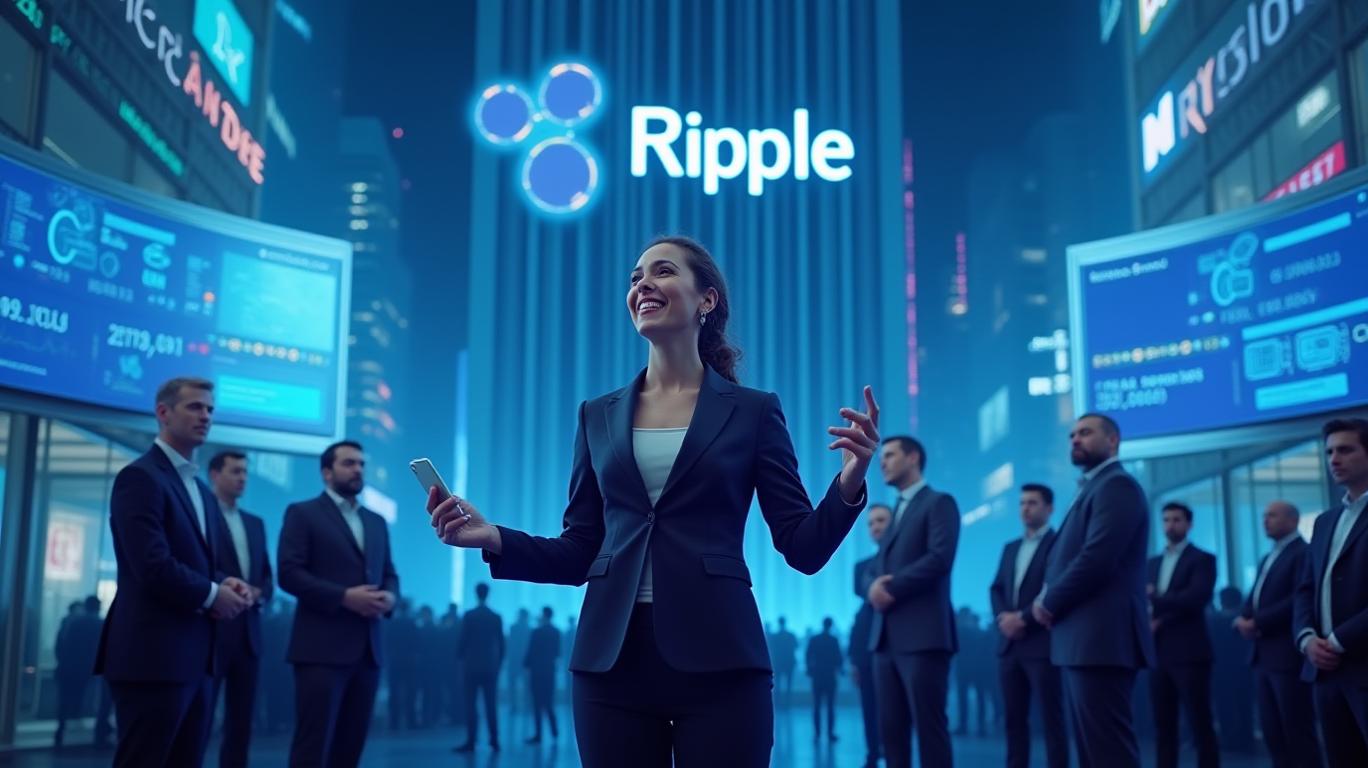Ripple Secures Major Regulatory Approval in UAE, Expands Crypto Payment Services
Ripple, a prominent enterprise blockchain and crypto solutions provider, has secured a major regulatory approval from the Dubai Financial Services Authority (DFSA). This milestone positions Ripple as the first blockchain-enabled payments provider licensed to operate within the Dubai International Financial Centre (DIFC), marking a significant expansion of its presence in the Middle East and a commitment to adhering to global regulatory standards.
This approval enables Ripple to offer regulated crypto payment services in the UAE, a country with a substantial cross-border payments market. The move allows businesses in the UAE to leverage Ripple’s global paymentsGPN-- product, which aims to address inefficiencies in traditional cross-border transactions, such as high fees, lengthy settlement times, and lack of transparency. A business survey by Ripple revealed that a significant majority of finance leaders in the Middle East and Africa (MEA) region perceive faster payments and settlement times as the primary advantage of integrating blockchain-based currencies into their cross-border payment operations.
Brad Garlinghouse, CEO of Ripple, commented on this achievement, stating, “We are entering an unprecedented period of growth for the crypto industry, driven by greater regulatory clarity around the world and increasing institutional adoption.” He highlighted the UAE’s proactive approach to fostering a supportive atmosphere for technological and crypto innovation, positioning the nation to reap substantial benefits in this evolving landscape.
Since establishing its Middle East headquarters in the DIFC in 2020, Ripple has been dedicated to strengthening its regional presence. Approximately 20% of Ripple’s global customer base operates within the Middle East, indicating the region’s readiness to adopt blockchain solutions. The DFSA license reinforces Ripple’s role as a trusted partner for financial institutions and enables the company to meet the growing demand for more efficient and transparent cross-border transactions in one of the world’s largest payment hubs.
Arif Amiri, CEO of DIFC, expressed enthusiasm about Ripple’s expanded commitment to Dubai. He emphasized DIFC’s support for forward-thinking companies like Ripple in shaping the future of finance and accelerating the adoption of blockchain technology in the payments industry.
Ripple’s recent DFSA license adds to its growing list of over 60 regulatory approvals worldwide. Notably, in October 2024, the DFSA approved Ripple’s expansion of services within the DIFC in principle, marking a pivotal moment for Ripple’s operations in the Middle East. This approval underscored Ripple’s strategy of collaborating with regulators and policymakers globally to integrate compliant blockchain and crypto technologies into the existing financial system.
Additionally, Ripple has been proactive in fostering blockchain and digital asset innovation in the UAE. As part of its global 1 B XRP Fund program, Ripple announced a partnership with the DIFC Innovation Hub, aiming to connect emerging developers with DIFC’s extensive innovation network. Furthermore, Ripple renewed its strategic partnership with NYU Abu Dhabi through the University Blockchain Research Initiative (UBRI), increasing the total funding grant to support research projects and student initiatives. These efforts reflect Ripple’s ongoing commitment to advancing blockchain research, skills development, and supporting local financial innovation.
Ripple’s attainment of the DFSA license represents a significant advancement in the company’s mission to revolutionize cross-border payments through blockchain technology. By securing regulatory approval in the UAE, Ripple is well-positioned to address the growing demand for faster, more cost-effective, and transparent transactions in a region rapidly embracing digital innovation. This development reinforces Ripple’s commitment to regulatory compliance and highlights the UAE’s strategic vision to become a global leader in the fintech and crypto sectors.

Quickly understand the history and background of various well-known coins
Latest Articles
Stay ahead of the market.
Get curated U.S. market news, insights and key dates delivered to your inbox.

Comments
No comments yet